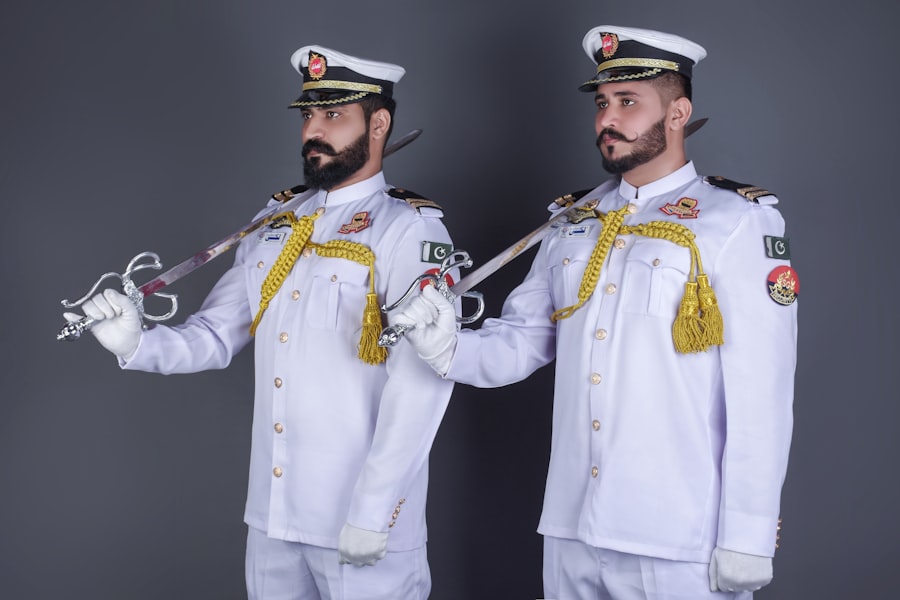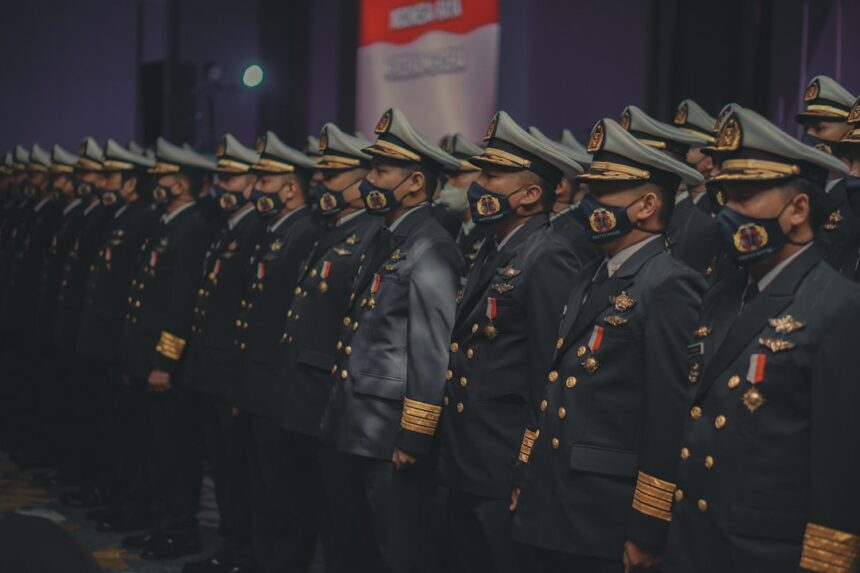In recent years, the phenomenon of Russian generals engaging in financial theft has garnered significant attention, both within Russia and on the global stage. This rise can be attributed to a confluence of factors, including the increasing militarization of the Russian state and the intertwining of military and economic interests. As the Russian government has sought to bolster its military capabilities, it has inadvertently created an environment where military leaders can exploit their positions for personal gain.
The lack of accountability and oversight within the military hierarchy has allowed these individuals to operate with relative impunity, leading to a surge in financial misconduct. Moreover, the historical context of corruption in Russia cannot be overlooked.
Generals, with their access to state resources and networks, have found themselves in prime positions to capitalize on this chaos. As they have risen through the ranks, many have developed sophisticated methods for siphoning off funds, often using their military connections to shield themselves from scrutiny. This trend has not only enriched a select few but has also contributed to a broader culture of corruption that permeates various levels of Russian society.
Key Takeaways
- Russian generals have been increasingly involved in financial theft, contributing to the rise of this criminal activity in the country.
- Tactics and strategies used by Russian generals in financial theft include money laundering, embezzlement, and fraud, among others.
- Corruption and collusion play a significant role in enabling Russian generals to carry out financial theft, often with the support of government officials and business leaders.
- The impact of Russian generals’ financial theft on the Russian economy is detrimental, leading to loss of public funds, decreased investor confidence, and hindered economic growth.
- Russian generals’ financial theft has an international reach, with connections to global criminal networks and implications for geopolitical dynamics and global security.
The Tactics and Strategies Used by Russian Generals in Financial Theft
The tactics employed by Russian generals in their financial theft are as varied as they are cunning. One prevalent strategy involves the manipulation of procurement processes within the military. By inflating costs or colluding with contractors, these generals can divert substantial sums of money into their own pockets.
This practice is often facilitated by a lack of transparency in military spending, which allows for significant discrepancies to go unnoticed. Additionally, some generals have been known to create shell companies that serve as fronts for fraudulent transactions, further obscuring their illicit activities. Another common tactic is the exploitation of state contracts and resources.
Generals may leverage their authority to secure lucrative contracts for companies they have a stake in, ensuring that funds flow back to them under the guise of legitimate business operations. This not only enriches them personally but also perpetuates a cycle of corruption that undermines the integrity of military operations. Furthermore, the use of intimidation and coercion against subordinates or business partners is not uncommon, as these generals seek to maintain control over their illicit enterprises while silencing any potential whistleblowers.
The Role of Corruption and Collusion in Russian Generals’ Financial Theft

Corruption and collusion are central to understanding the financial theft perpetrated by Russian generals. The military establishment in Russia has long been plagued by a culture of graft, where loyalty is often rewarded with financial gain rather than merit. This environment fosters an atmosphere where collusion between military leaders and private enterprises becomes commonplace.
Generals may collaborate with business tycoons to orchestrate schemes that benefit both parties, creating a symbiotic relationship that thrives on mutual interests. Moreover, the pervasive nature of corruption within the Russian military means that many individuals are complicit in these schemes. Lower-ranking officers may turn a blind eye to misconduct in exchange for favors or financial incentives, perpetuating a cycle of corruption that extends throughout the ranks.
This collusion not only facilitates financial theft but also erodes trust within the military itself, as personnel become increasingly aware of the unethical practices that dominate their environment. As a result, the integrity of the armed forces is compromised, leading to broader implications for national security.
The Impact of Russian Generals’ Financial Theft on the Russian Economy
| Metrics | Impact |
|---|---|
| Amount of Financial Theft | Billions of rubles stolen |
| Economic Consequences | Decreased investor confidence |
| Effect on GDP | Negative impact on growth |
| Government Response | Institution of stricter financial regulations |
The financial theft orchestrated by Russian generals has far-reaching consequences for the Russian economy. As funds are siphoned off from military budgets and state resources, critical areas such as defense modernization and infrastructure development suffer. The diversion of resources undermines the military’s operational capabilities, leaving it ill-equipped to address both domestic and international challenges.
This misallocation of funds not only hampers national security but also stifles economic growth, as investments that could have bolstered various sectors are lost to corruption. Furthermore, the prevalence of financial theft contributes to a broader climate of distrust among citizens and investors alike. When individuals perceive that their leaders are engaged in corrupt practices, it diminishes confidence in government institutions and stifles foreign investment.
The resulting economic stagnation can lead to social unrest, as citizens become increasingly frustrated with the disparity between the wealth of corrupt officials and their own economic struggles. In this way, the actions of a few powerful generals can have cascading effects on the entire nation, exacerbating existing economic challenges.
The International Reach of Russian Generals’ Financial Theft
The international implications of financial theft by Russian generals extend beyond Russia’s borders, affecting global markets and diplomatic relations.
By utilizing offshore accounts and shell companies in foreign countries, they can obscure the origins of their ill-gotten gains while simultaneously expanding their influence on an international scale.
This transnational aspect of financial theft complicates efforts to hold these individuals accountable and poses challenges for law enforcement agencies worldwide. Additionally, the international community has begun to recognize the threat posed by these corrupt practices. As evidence mounts regarding the involvement of Russian generals in financial crimes, countries are increasingly wary of engaging with Russia on economic matters.
Sanctions and other punitive measures have been implemented in response to these activities, further isolating Russia from global markets. This dynamic not only impacts Russia’s economy but also alters geopolitical relationships, as nations grapple with how best to respond to the actions of corrupt military leaders.
The Response of the Russian Government to Russian Generals’ Financial Theft

The response of the Russian government to the financial theft perpetrated by its generals has been characterized by a mix of denial, complicity, and selective accountability. While there have been occasional publicized crackdowns on corruption within the military, these efforts often appear superficial and lack genuine commitment to reform. High-profile cases may be pursued when they serve political interests or when public outcry becomes too great to ignore; however, many instances of financial misconduct go unaddressed due to the entrenched nature of corruption within the system.
Moreover, there is often a reluctance among government officials to confront powerful military leaders directly. The intertwining of political and military interests creates a delicate balance that discourages open criticism or accountability for fear of destabilizing existing power structures. As a result, many generals continue to operate with impunity, emboldened by their connections and influence within both military and political spheres.
This lack of meaningful action reinforces a culture where financial theft is tolerated or even accepted as part of doing business within the military establishment.
The Connection Between Russian Generals’ Financial Theft and Global Criminal Networks
The nexus between Russian generals’ financial theft and global criminal networks is increasingly evident as investigations reveal intricate webs of collaboration between military leaders and organized crime syndicates. These networks often provide logistical support for illicit activities, facilitating money laundering operations and enabling corrupt officials to hide their assets abroad. In return, generals may offer protection or access to state resources that benefit criminal enterprises, creating a mutually beneficial relationship that thrives on corruption.
Furthermore, this connection poses significant challenges for law enforcement agencies worldwide. The sophistication and reach of these networks make it difficult to trace illicit funds or dismantle operations effectively. As Russian generals continue to engage with global criminal organizations, they not only enrich themselves but also contribute to broader issues such as human trafficking, drug smuggling, and arms proliferation.
The implications extend beyond Russia’s borders, as these activities can destabilize regions and undermine international security efforts.
The Influence of Russian Generals’ Financial Theft on Geopolitical Dynamics
The financial theft perpetrated by Russian generals has profound implications for geopolitical dynamics both regionally and globally. As these individuals amass wealth through corrupt practices, they gain significant influence over political decisions and military strategies within Russia. This concentration of power can lead to aggressive foreign policies driven by personal interests rather than national security considerations.
Consequently, neighboring countries may perceive Russia as an increasingly unpredictable actor on the world stage. Moreover, the actions of corrupt military leaders can exacerbate tensions between Russia and other nations. As evidence mounts regarding their involvement in illicit activities, diplomatic relations may become strained, leading to increased sanctions or isolation from international forums.
This dynamic not only affects Russia’s standing in global affairs but also complicates efforts to address pressing issues such as regional conflicts or arms control negotiations.
The Implications of Russian Generals’ Financial Theft for Global Security
The implications of financial theft by Russian generals extend far beyond economic concerns; they pose significant threats to global security as well. The diversion of military resources into personal coffers undermines Russia’s ability to respond effectively to security challenges both domestically and internationally. As operational capabilities diminish due to misallocation of funds, vulnerabilities may arise that could be exploited by adversaries seeking to destabilize the region.
Additionally, the entrenchment of corruption within the military establishment can lead to unpredictable behavior from military leaders who prioritize personal gain over strategic objectives. This unpredictability raises concerns about decision-making processes during crises or conflicts, potentially leading to escalations that could have been avoided with more accountable leadership. As such, addressing financial theft among Russian generals is not merely an issue of domestic governance; it is a matter of global security that requires concerted international attention.
The Challenges of Holding Russian Generals Accountable for Financial Theft
Holding Russian generals accountable for financial theft presents numerous challenges that complicate efforts at reform and justice. The entrenched nature of corruption within the military establishment creates an environment where accountability is often elusive. Many generals operate with significant political protection due to their connections within both military and governmental hierarchies, making it difficult for law enforcement agencies to pursue cases against them effectively.
Moreover, public awareness and outrage regarding corruption may be stifled by state-controlled media narratives that downplay or dismiss allegations against powerful figures. This lack of transparency further complicates efforts at accountability, as citizens may feel disempowered or skeptical about their ability to effect change within a system that appears rigged against them. Without robust mechanisms for oversight and enforcement, many generals may continue their illicit activities without fear of repercussions.
The Future of Russian Generals’ Involvement in Financial Theft
Looking ahead, the future involvement of Russian generals in financial theft remains uncertain but likely continues along its current trajectory unless significant reforms are implemented. As long as systemic corruption persists within the military establishment and political elite remain complicit in shielding powerful figures from accountability, opportunities for financial misconduct will abound. The interplay between personal ambition and institutional decay suggests that without concerted efforts toward transparency and reform, this cycle will perpetuate itself.
However, external pressures from international actors may play a role in shaping future dynamics. Increased scrutiny from foreign governments and organizations could lead to greater awareness among citizens regarding corruption’s impact on national security and economic stability. If public sentiment shifts toward demanding accountability from military leaders, there may be potential for change within Russia’s political landscape over time.
In conclusion, while challenges abound in addressing financial theft among Russian generals, recognizing its implications for both domestic governance and global security is crucial for fostering meaningful dialogue around reform efforts moving forward.
In recent years, there have been numerous reports highlighting the corruption within the Russian military, particularly focusing on how Russian generals have been implicated in embezzling funds. An insightful article that delves into this issue can be found on the website “In The War Room.” This piece provides a comprehensive analysis of the mechanisms through which these high-ranking officials divert military funds for personal gain, undermining the integrity of the armed forces. For a deeper understanding of this pervasive issue, you can read the related article by visiting In The War Room.
WATCH NOW! 🎖️ Plot Twist: Russia’s Military Is Being Eaten Alive By Its Own Corruption
FAQs
What is the article “How Russian generals steal money” about?
The article discusses the various methods used by Russian generals to embezzle funds and engage in corrupt practices within the Russian military.
What are some common methods used by Russian generals to steal money?
Some common methods used by Russian generals to steal money include inflating procurement costs, siphoning off funds from military contracts, and engaging in kickback schemes with suppliers.
How does corruption within the Russian military impact the country?
Corruption within the Russian military leads to a misallocation of resources, undermines national security, and erodes public trust in the government and military institutions.
What measures are being taken to address corruption within the Russian military?
The Russian government has implemented various anti-corruption measures, including increased oversight and audits of military spending, as well as the prosecution of individuals involved in corrupt activities. However, corruption remains a significant challenge within the Russian military.




